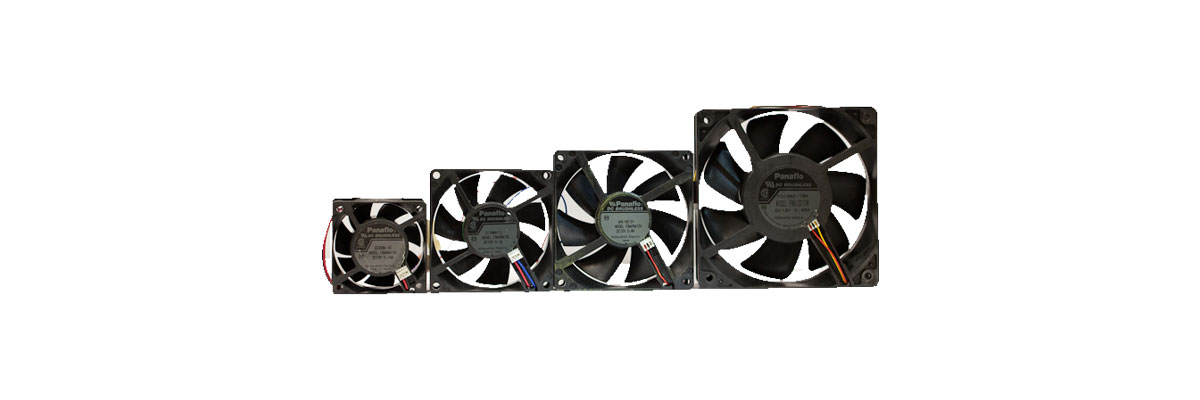

However, most agree that it’s best to have a single channel of airflow through your computer. Airflow is a complex topic, and one that’s still being debated amongst PC enthusiasts. The goal is to move as much air through your PC as efficiently as possible, so adding more fans will not only make your PC louder, it may also have little to no impact on the airflow of your computer. That’s why too many fans can be a problem. Ideally, you’ll want to use the biggest, slowest fans that can fit in your case.
DIFFERENT PC FAN SIZES GENERATOR
A big fan doesn’t have to work as hard as a small one to move the same volume of air, and fan speed is the main generator of fan noise. Here’s another trick - big fans are quieter than little fans. Noctua’s NF-S12B fans, for example, are the best PC fans we’ve found, and they’re around $15 apiece. Most users will want to look for fans that offer an adjustable speed switch, or ones that support fan speed modulation via a program like SpeedFan. The good news is that fans are cheap! Mostly. The bad news is that those fans will need to be replaced. Do you only see one or two fans? Then they’re probably cheap or old and are making more noise than they should. Take a look at what’s inside your desktop. Replace old fans with new versionsĪ system that is always noisy suffers from bad fans, too many fans, or both. It may seem small, but a little goes a long way. A good way to accomplish this balance is to cut small sections of foam and adhere them into your PC case on the side panel, about four or five. The goal is to find a balance between sound dampening and airflow. The other issue is airflow, which may actually increase the noise of your computer. Otherwise, you might find yourself dealing with a house fire.

Make sure you use foam that’s meant for electronics. There are a couple of downsides to this method, however. It’s easy to cut and can be attached with bundled adhesive or two-sided tape from your local hardware store. The foam can be used to plug up unused fan mounts, or layered across the side panels. Typical insulation is nothing more than molded foam that can be purchased for between $20 and $60 and stuck inside a PC with adhesive. This problem can be solved with sound insulation. The case might amplify sound or let it flow freely to your ears. Many inexpensive computers come in cases that were built without considering acoustics. The case is another area where you might find improvement. Better cable management results in better airflow, too, which can also help keep your components cooling, meaning your fans don’t need to work as hard. Dust causes heat, as does restricted airflow, causing your fans to spin faster and louder. Just make sure you’re blowing the dust out of your computer, not just redistributing it inside.įinally, before you replace the side panel, make sure that all dust filters and heatsinks are cleaned. That dust can make your computer overheat, as well as make your fan noisier, so a little bit of cleaning really can make a difference. Get a soft brush and a can of air, and get rid of any dust you see. This a good time to check the base of your computer too, and make sure the feet are rubberized and all on a flat plane to reduce noise.Īlso, while you have access to the fan and the back of your PC, don’t forget to clean the whole thing out. You can even buy mounts that include padding or gel for extra vibration resistance, though that is a step only advanced users will want to take. Grommets, gaskets, and screws may all be involved, and if any of them have grown loose over time, they could be vibrating and making your PC far louder than it’s supposed to be.Ĭheck them all, tighten anything that needs to be tightened, and make sure that fans aren’t wobbling or loose. Carefully remove the side panel of your PC and check all of your attachments. Here’s an easy step that almost anyone can do. Here are some ways to make your computer quieter. With the correct equipment and a few incantations, most users can exorcise the demon howling in their desktop.
DIFFERENT PC FAN SIZES HOW TO
With our tips, though, you’ll know how to make your PC quieter. Between failing drives, old fans, and inadequate airflow, there’s a lot that contributes to a noisy computer.

One aspect of PCs that still has plenty of room for improvement, however, is the amount of noise PC fans can make. Greg Mombert/Digital TrendsAs we move further into the digital age, our electronics have seen some drastic improvements and evolutions.


 0 kommentar(er)
0 kommentar(er)
